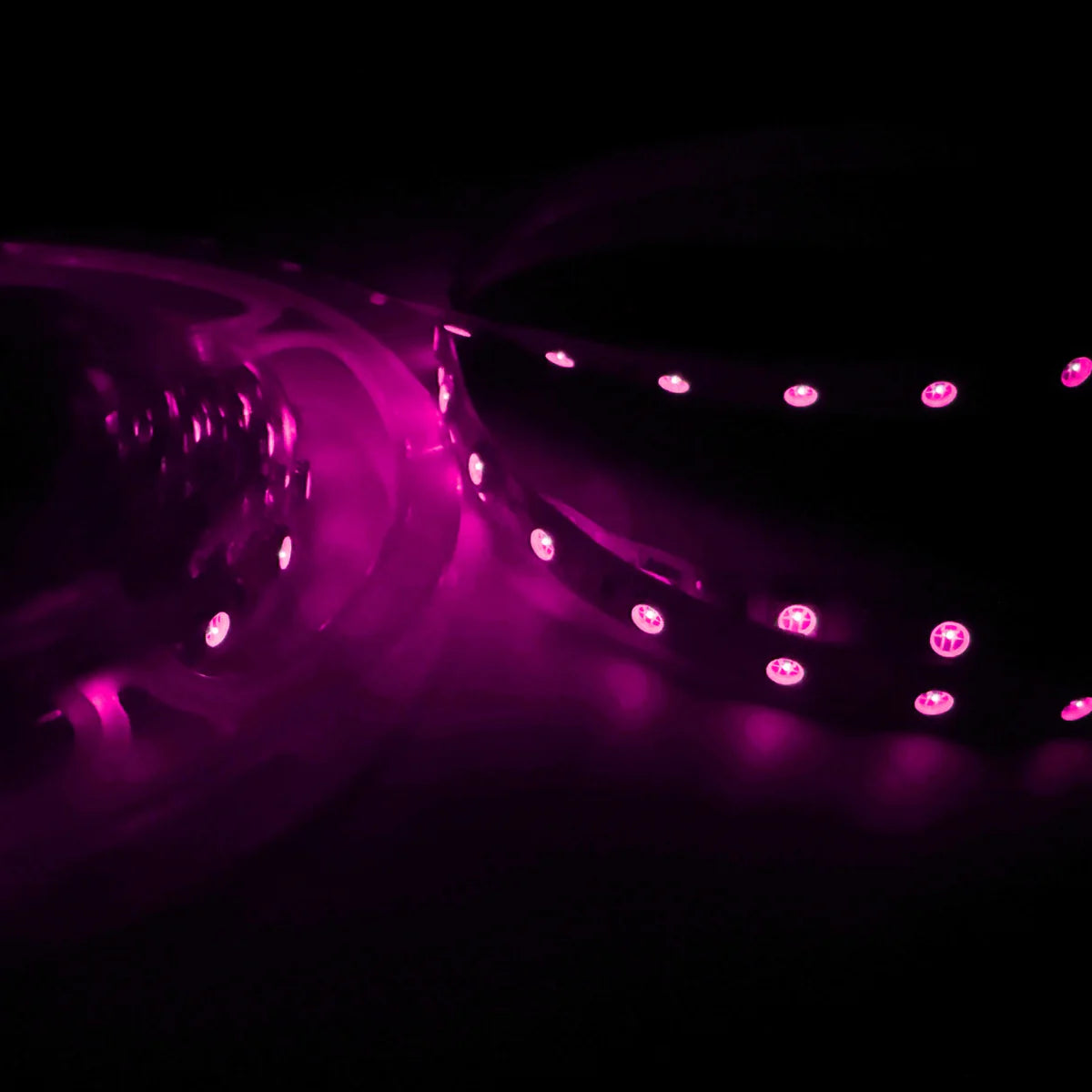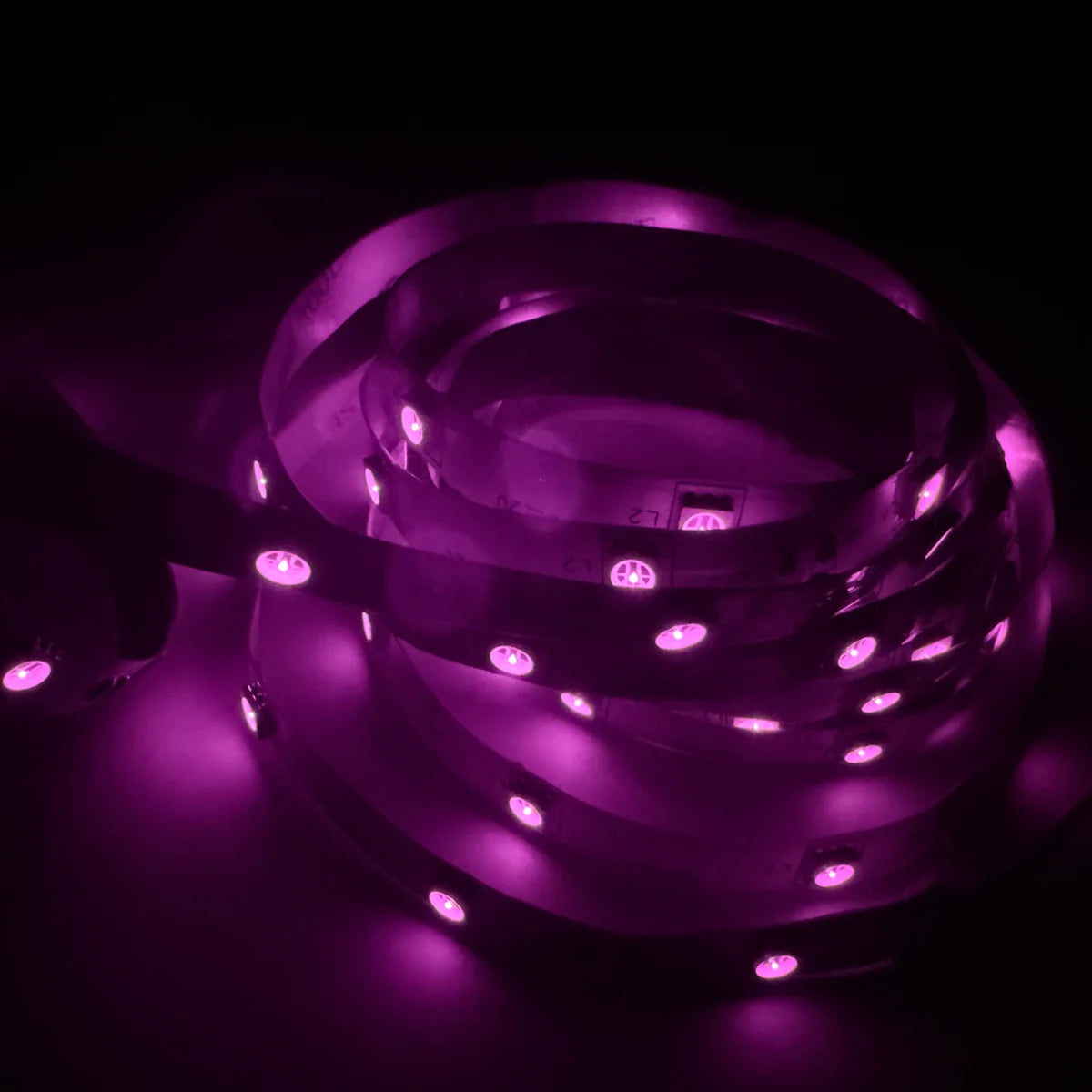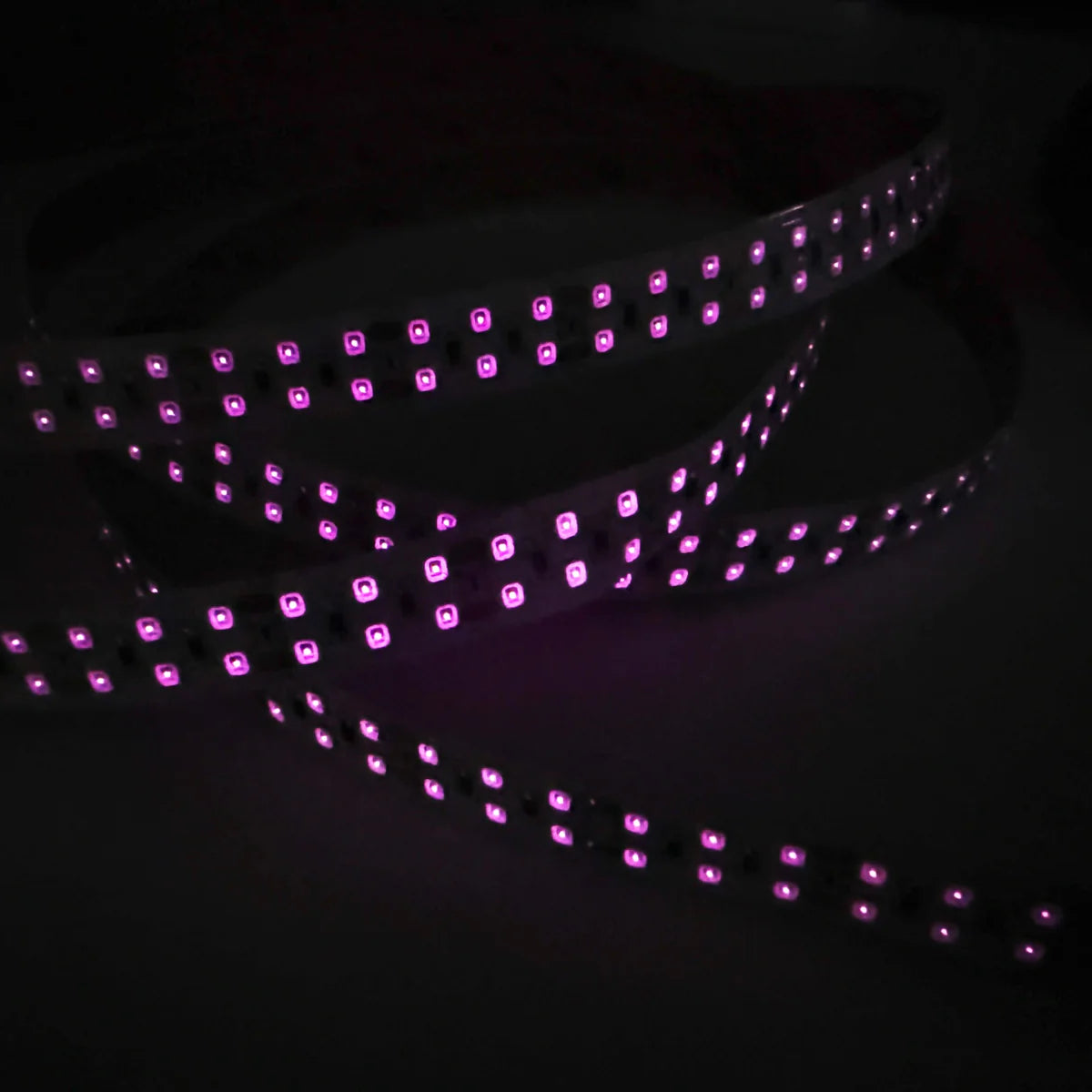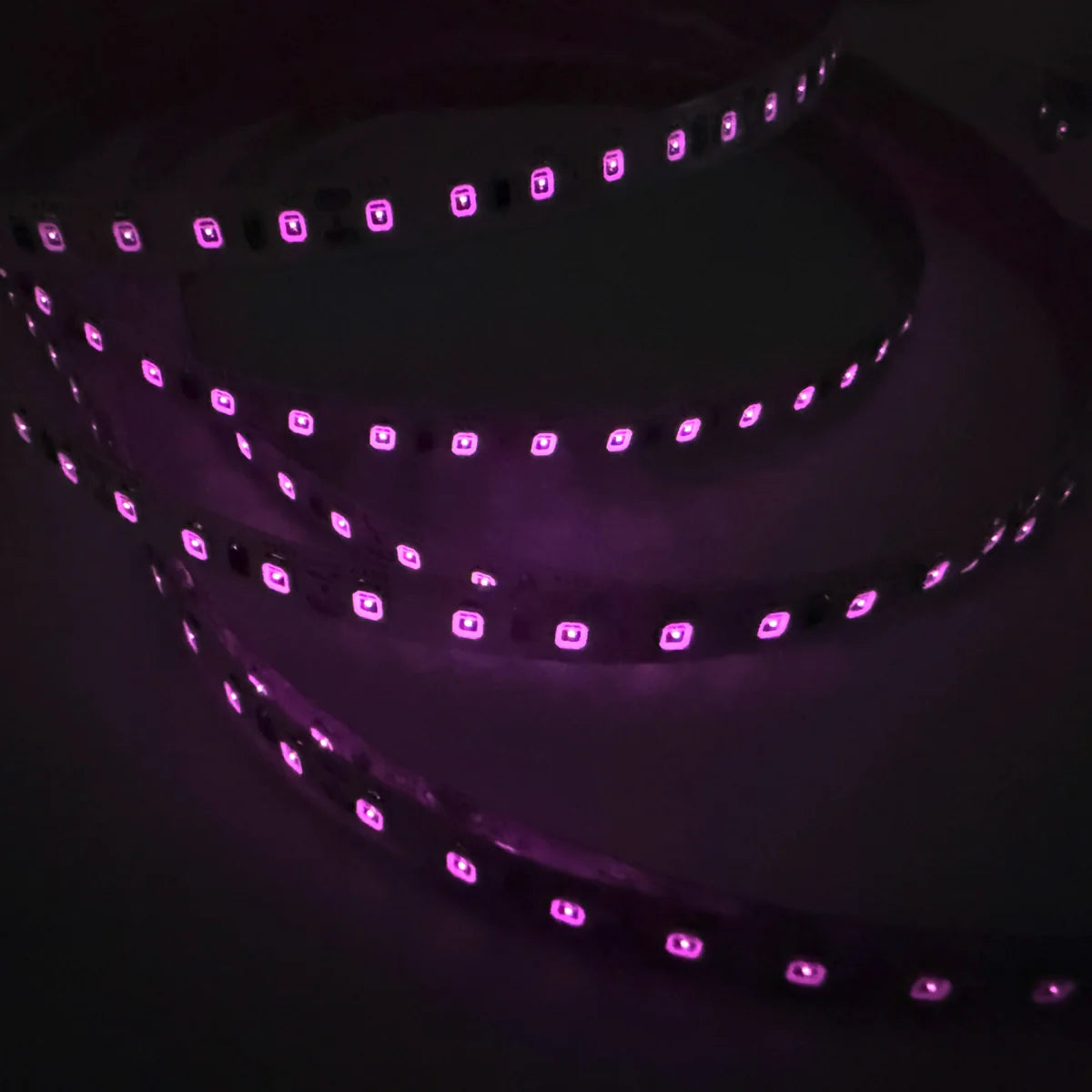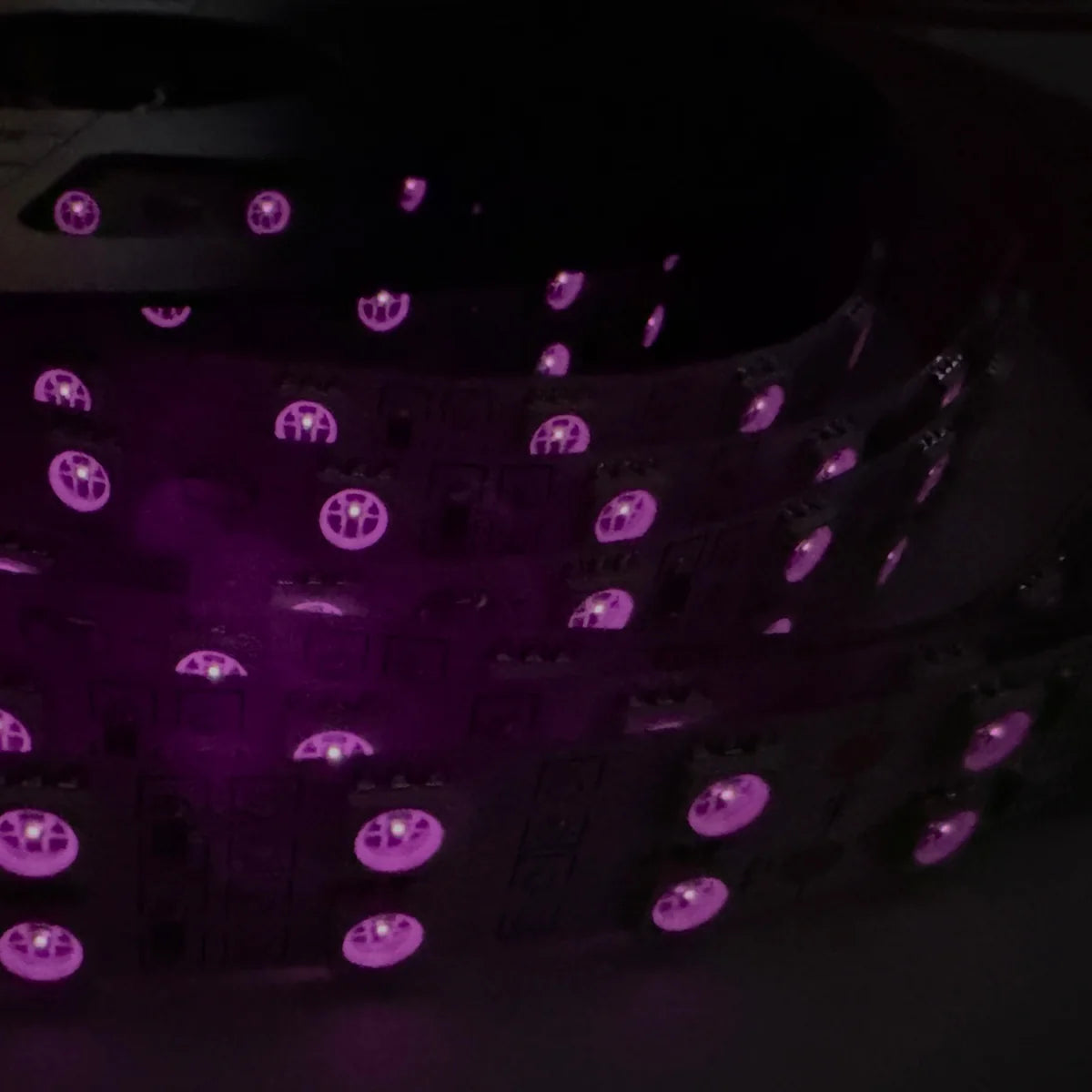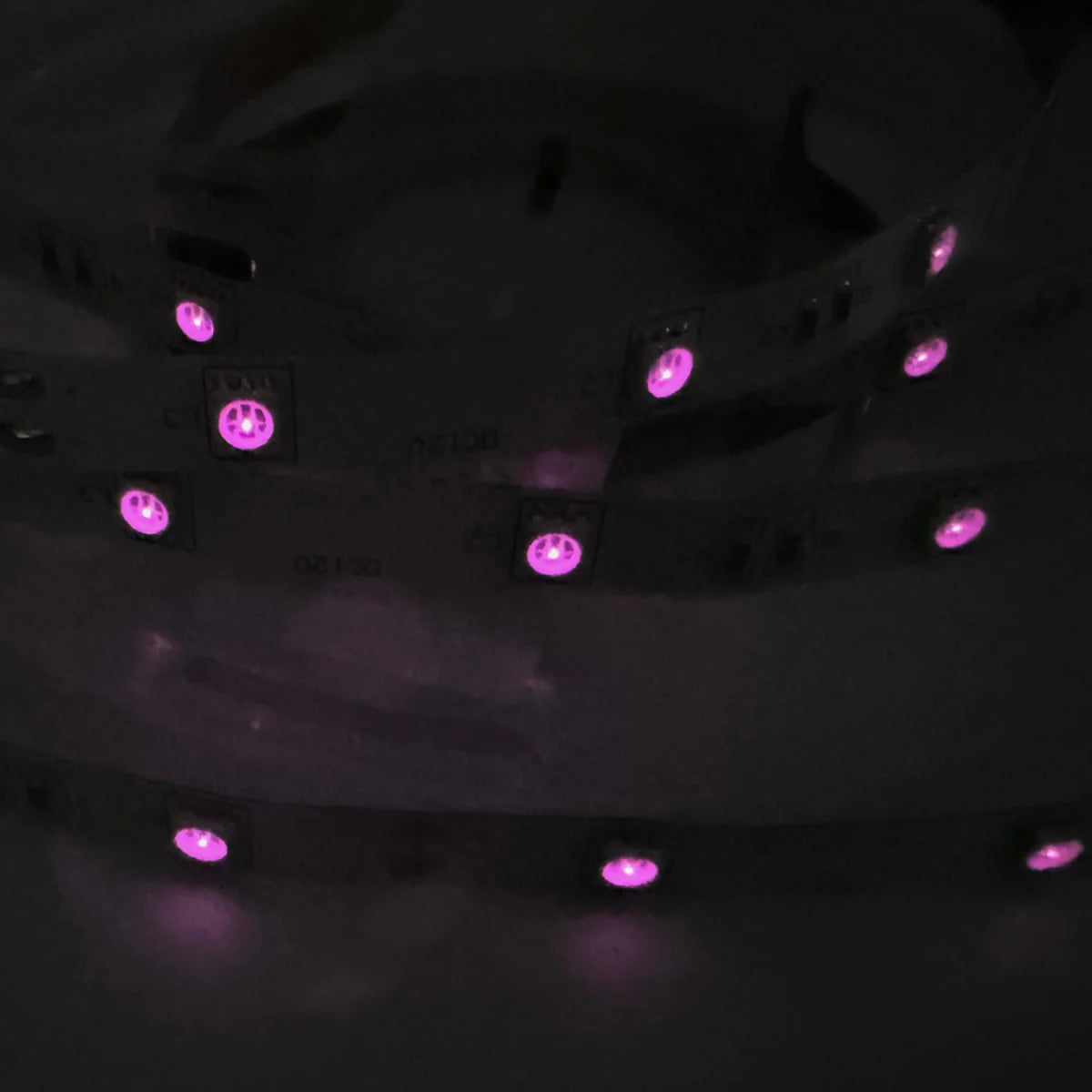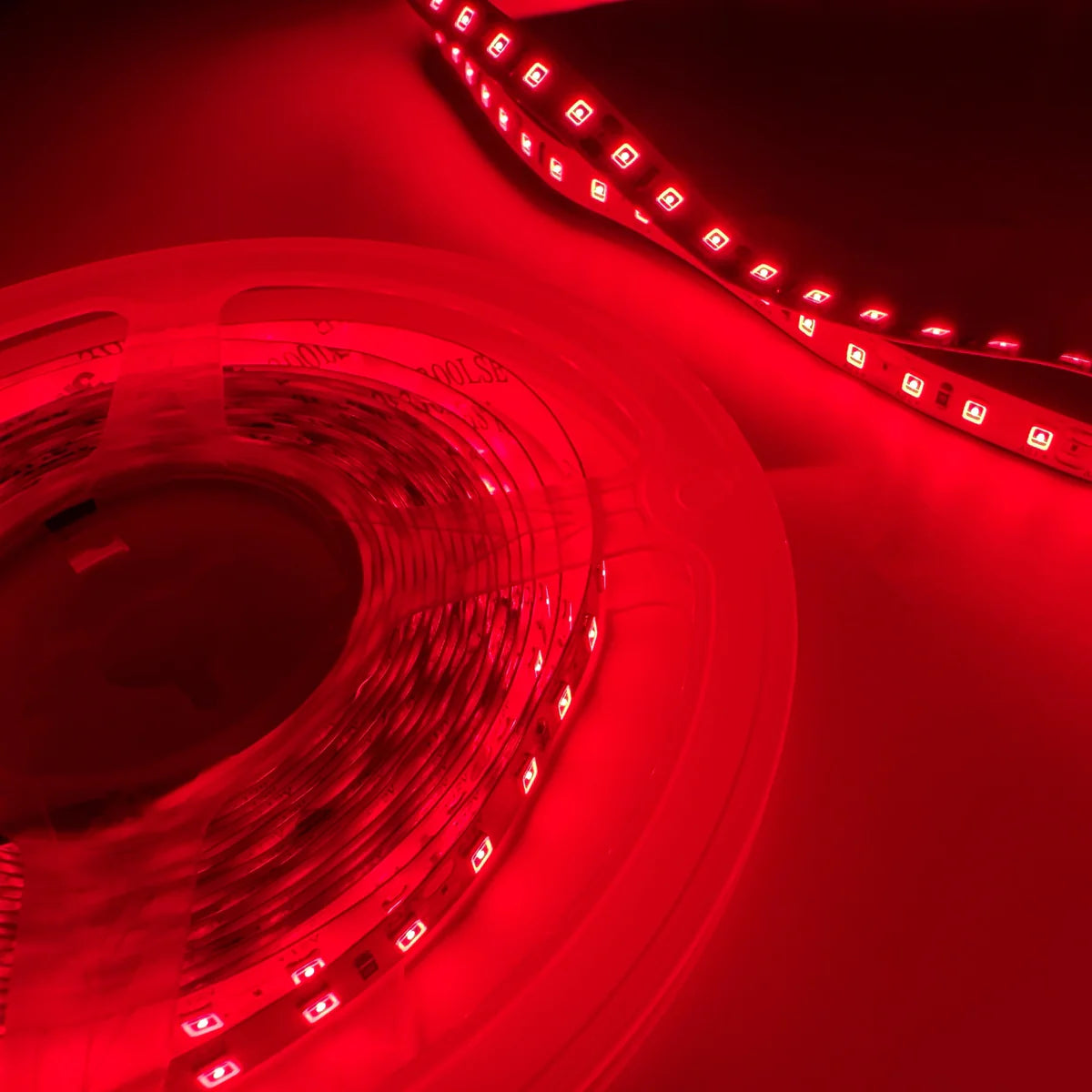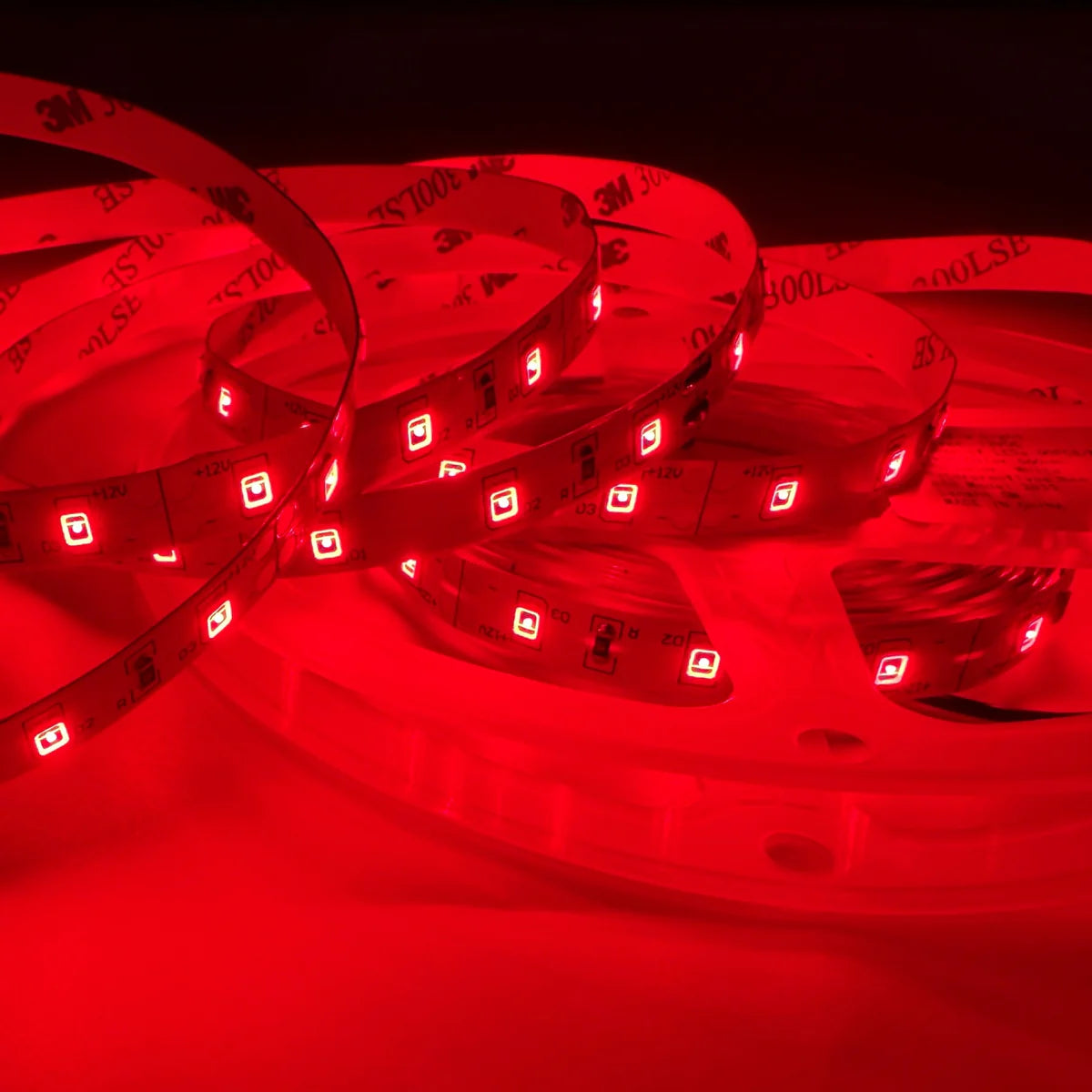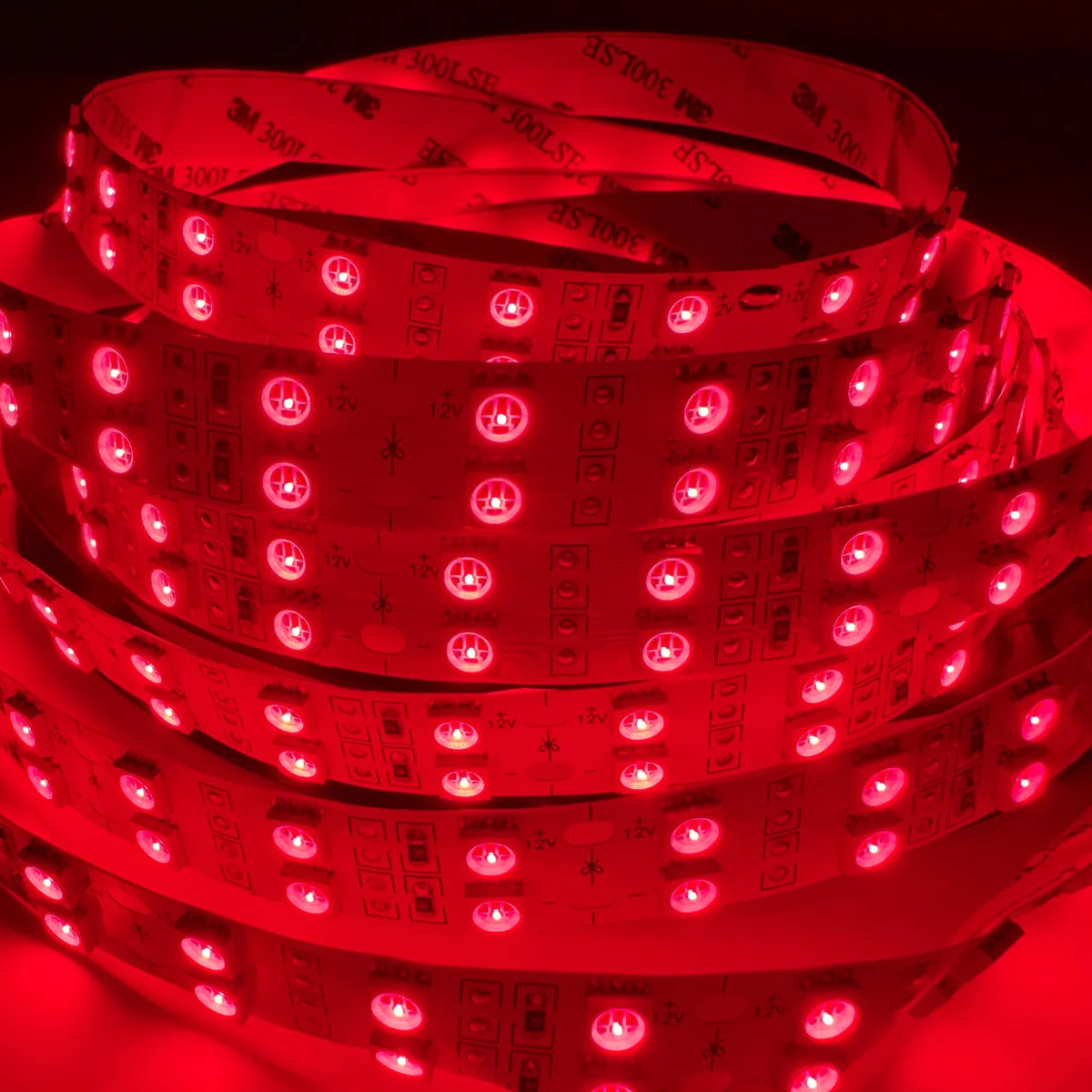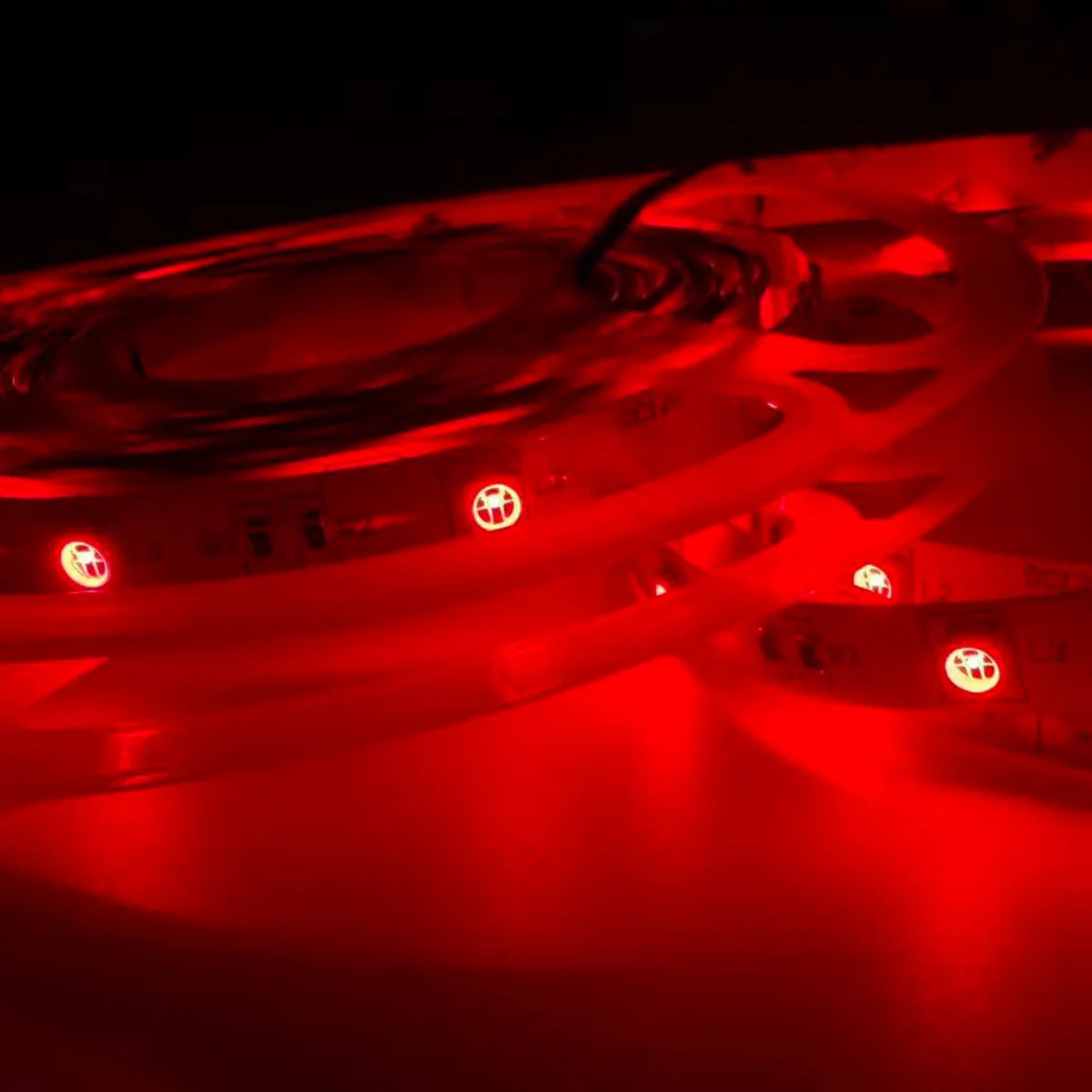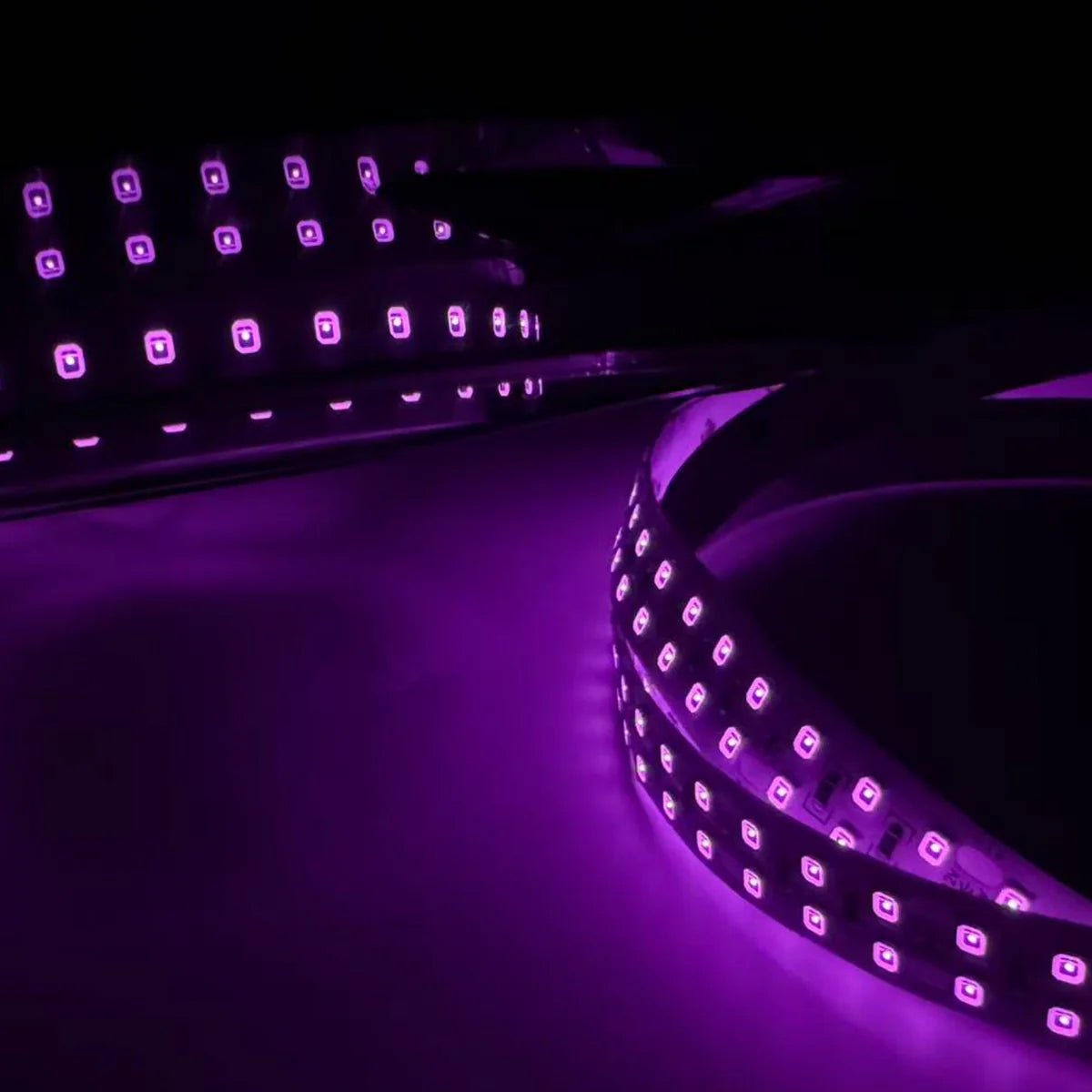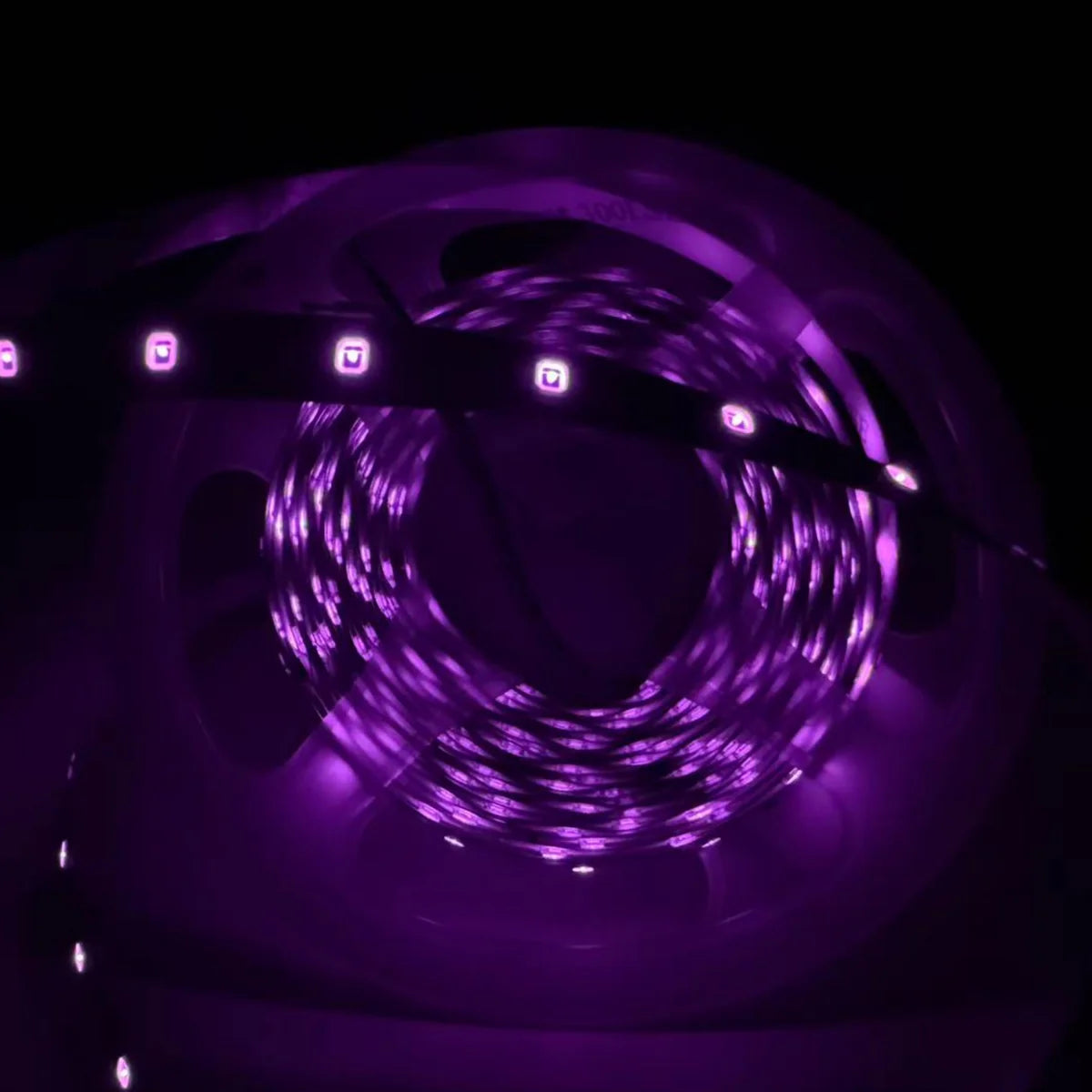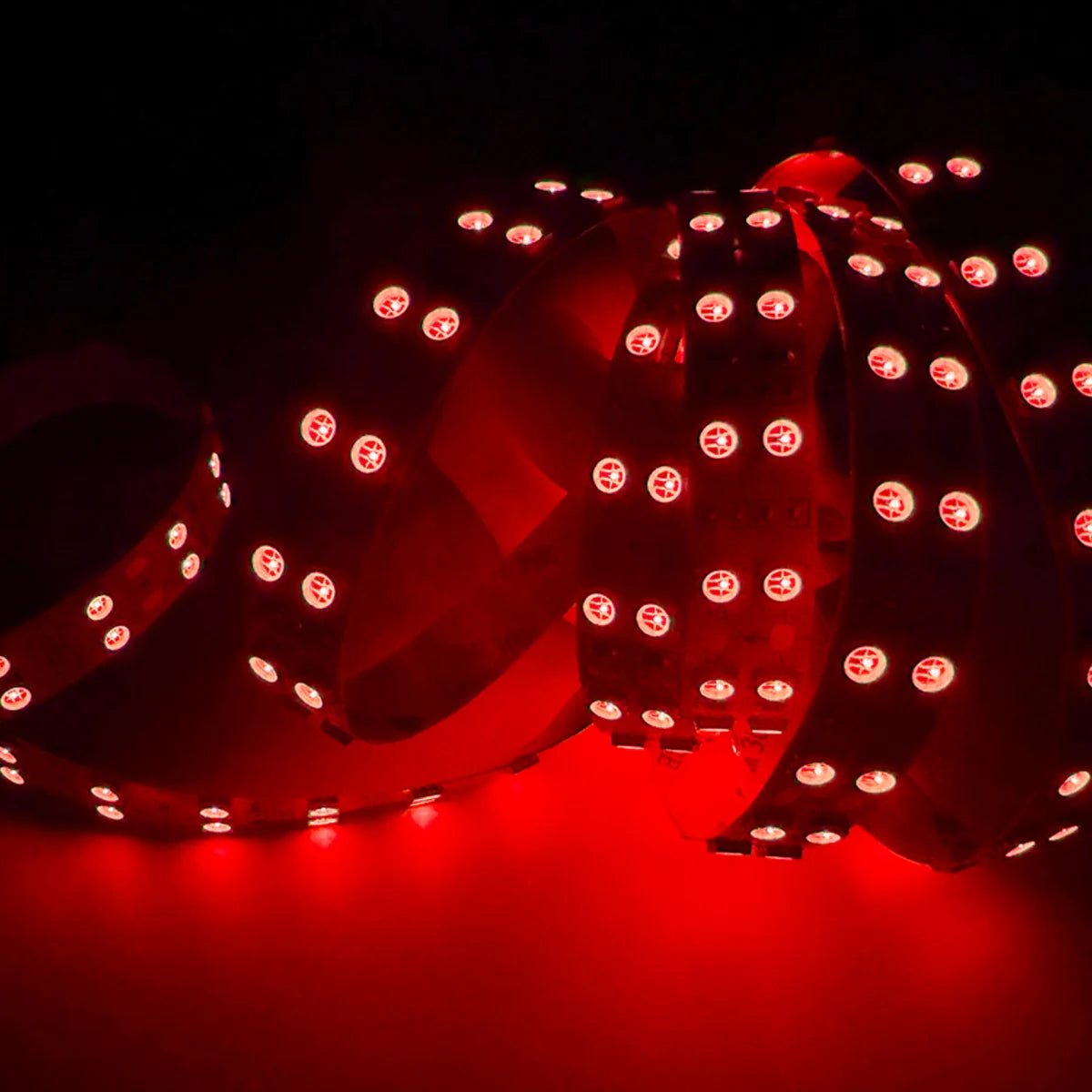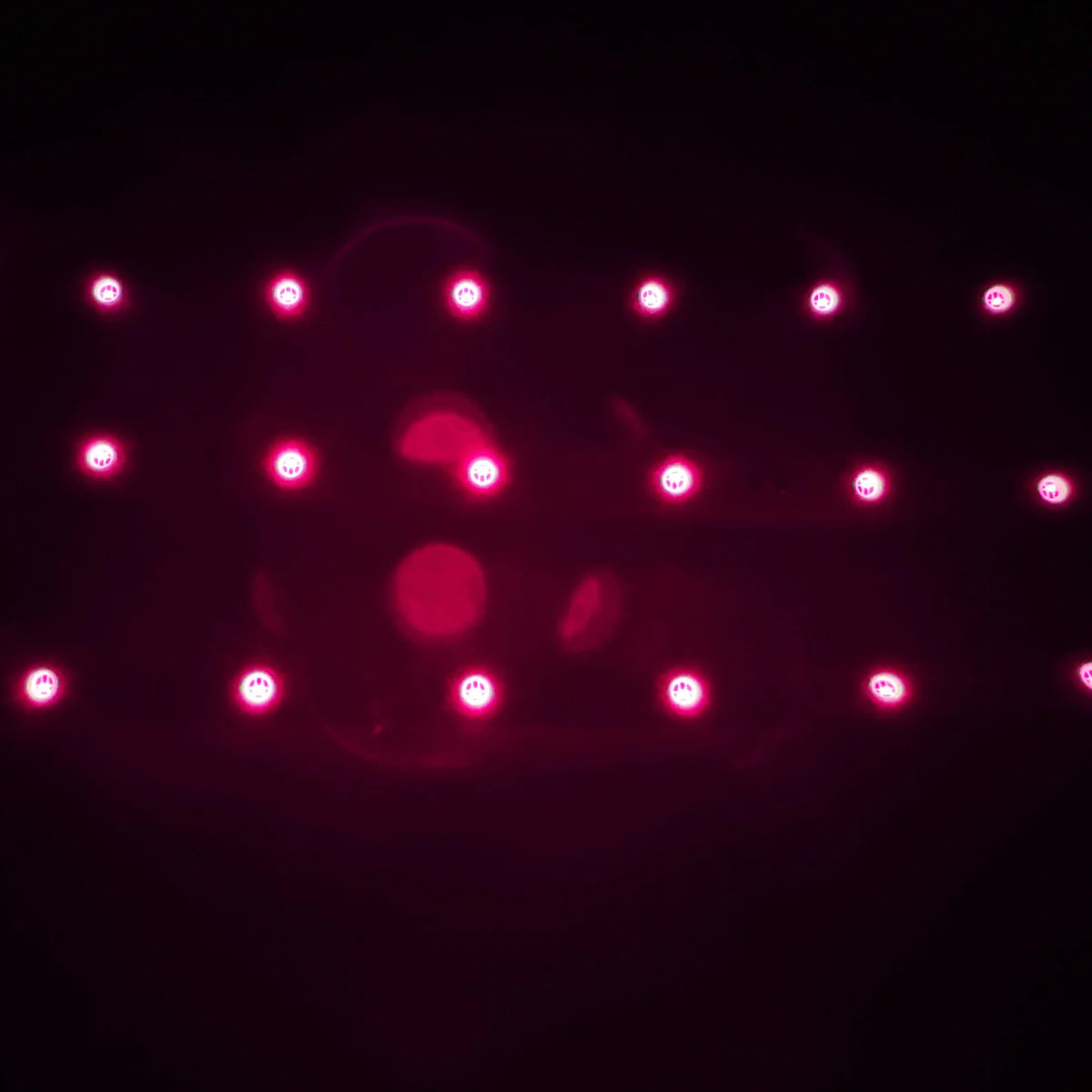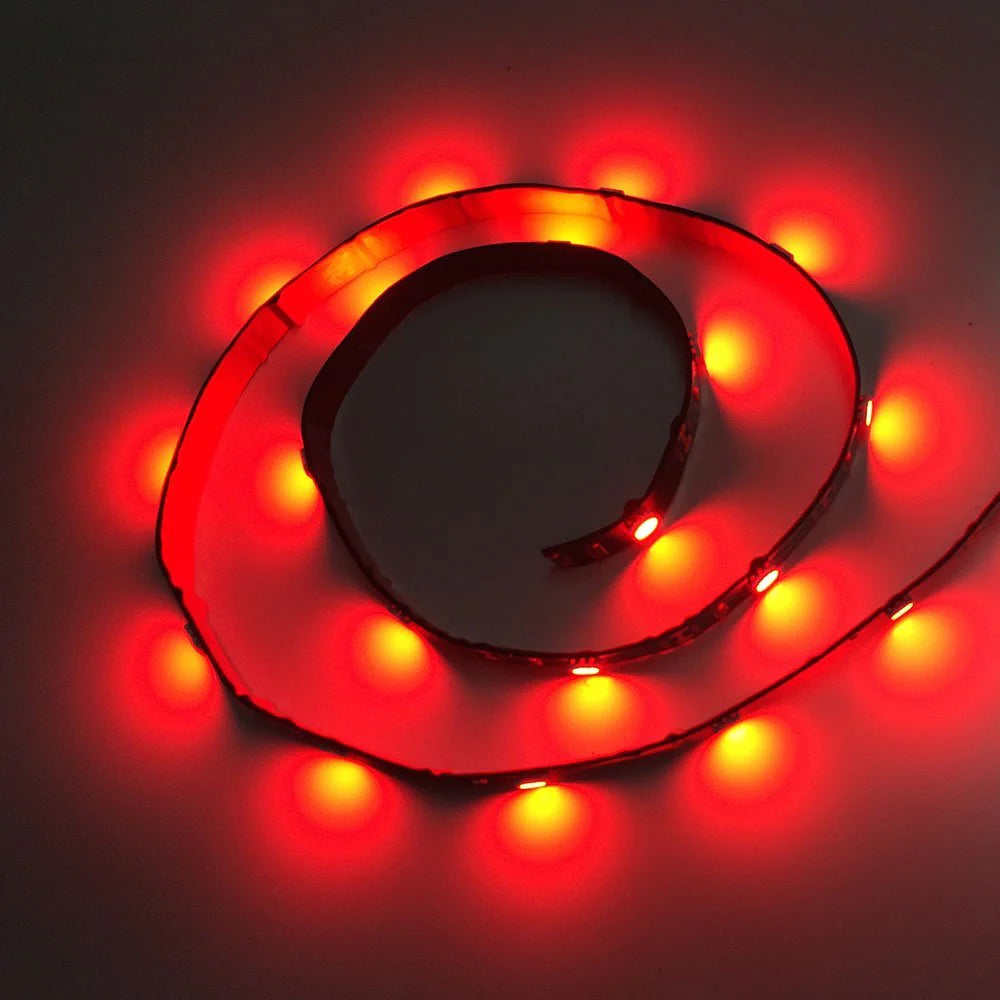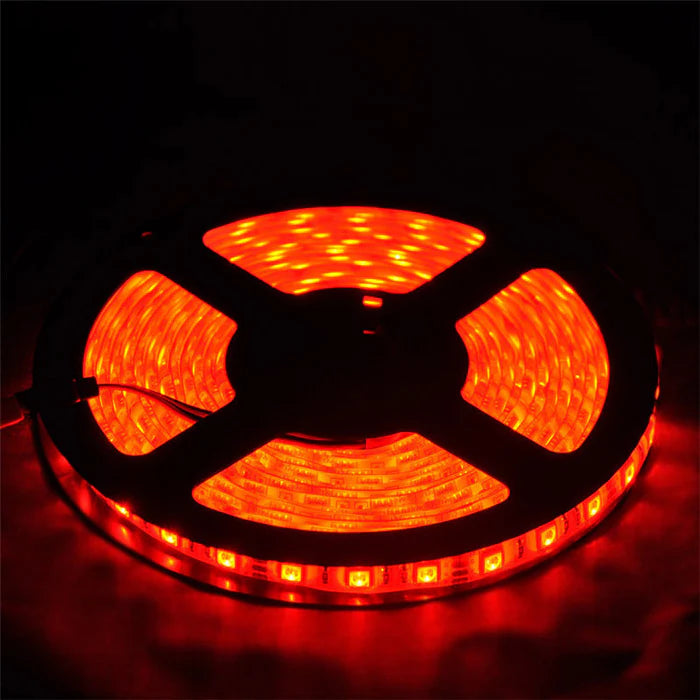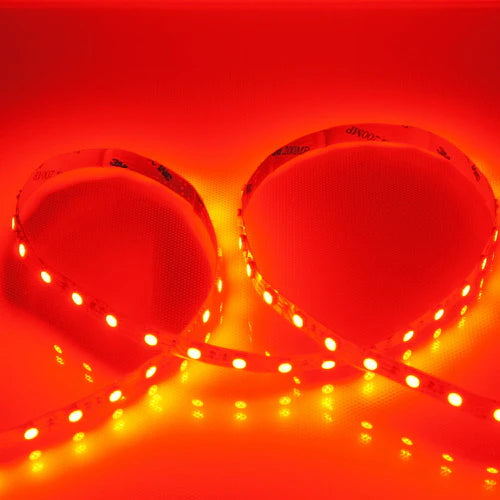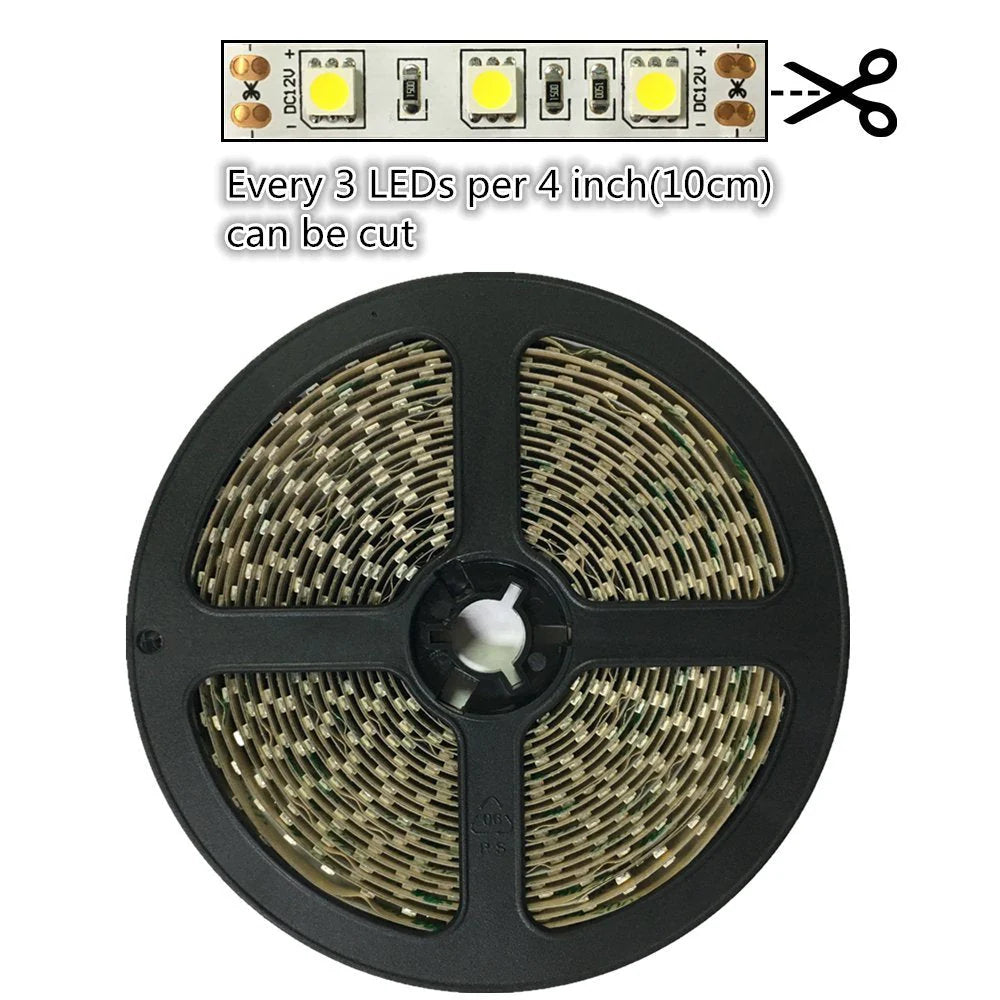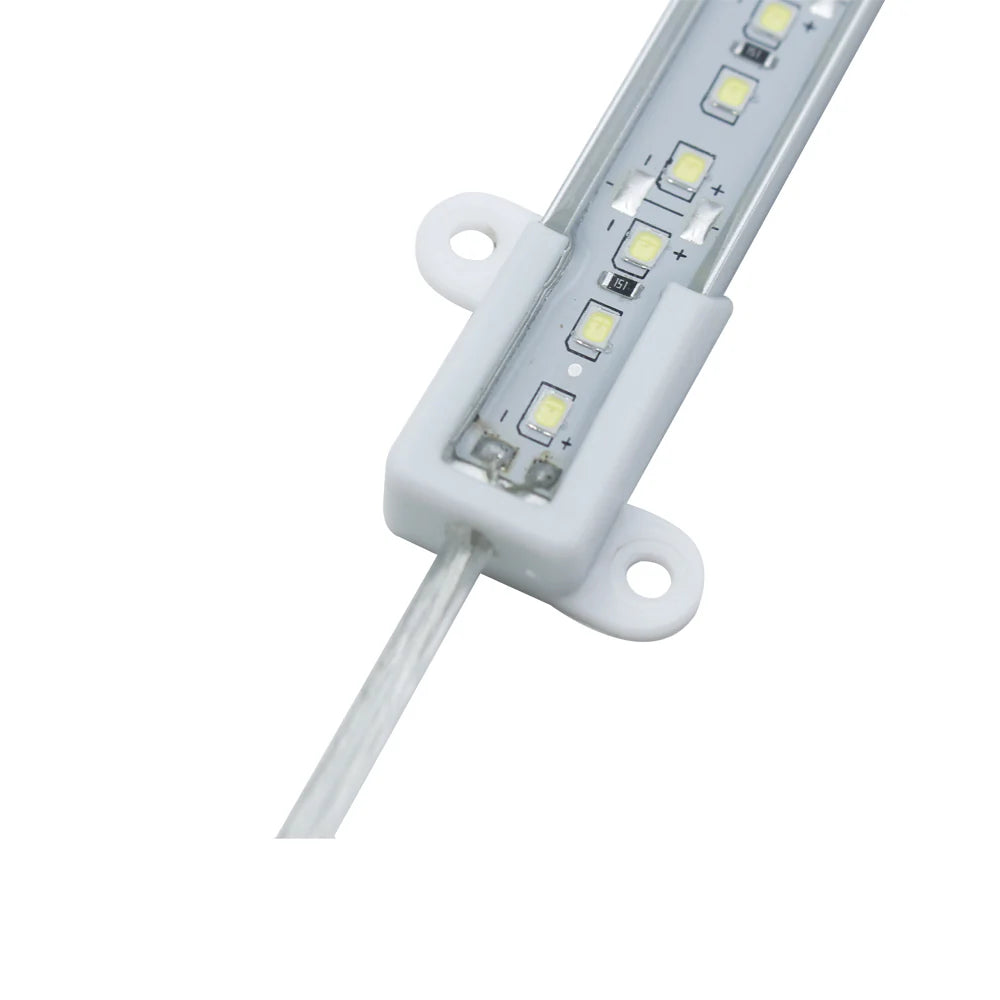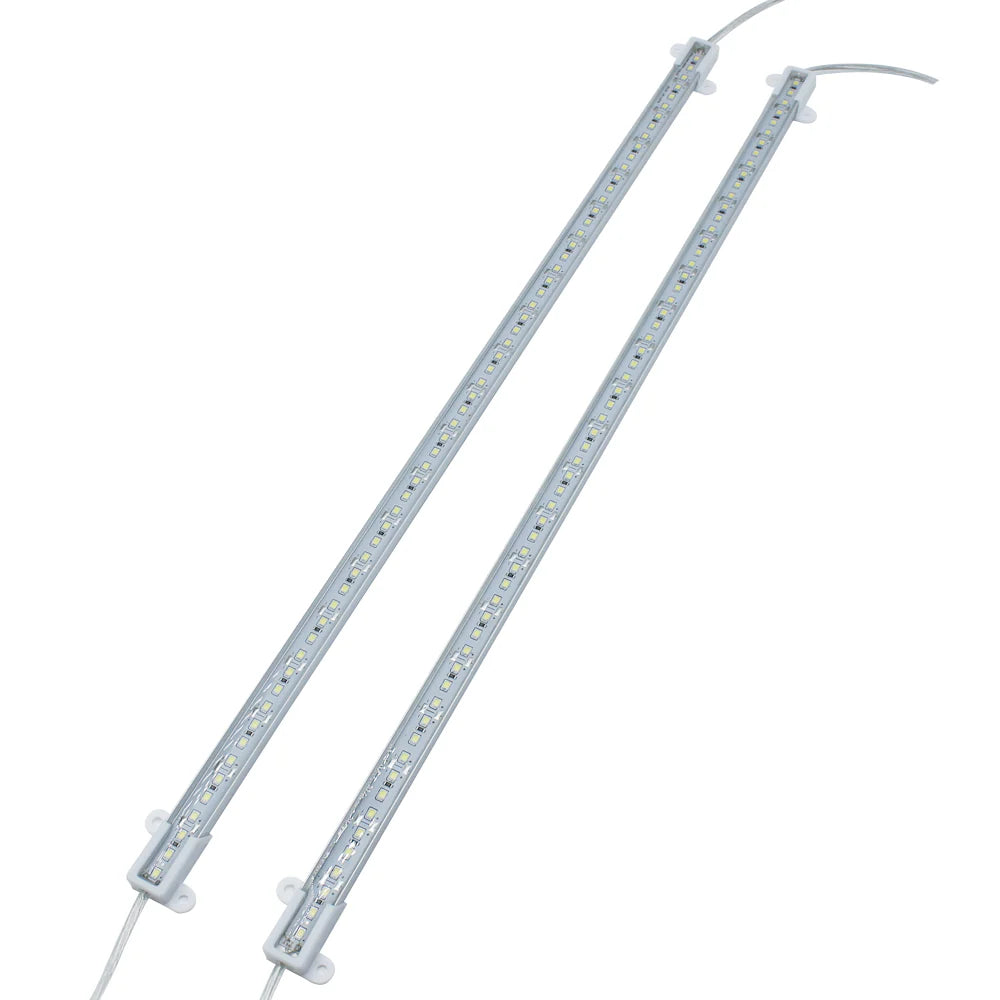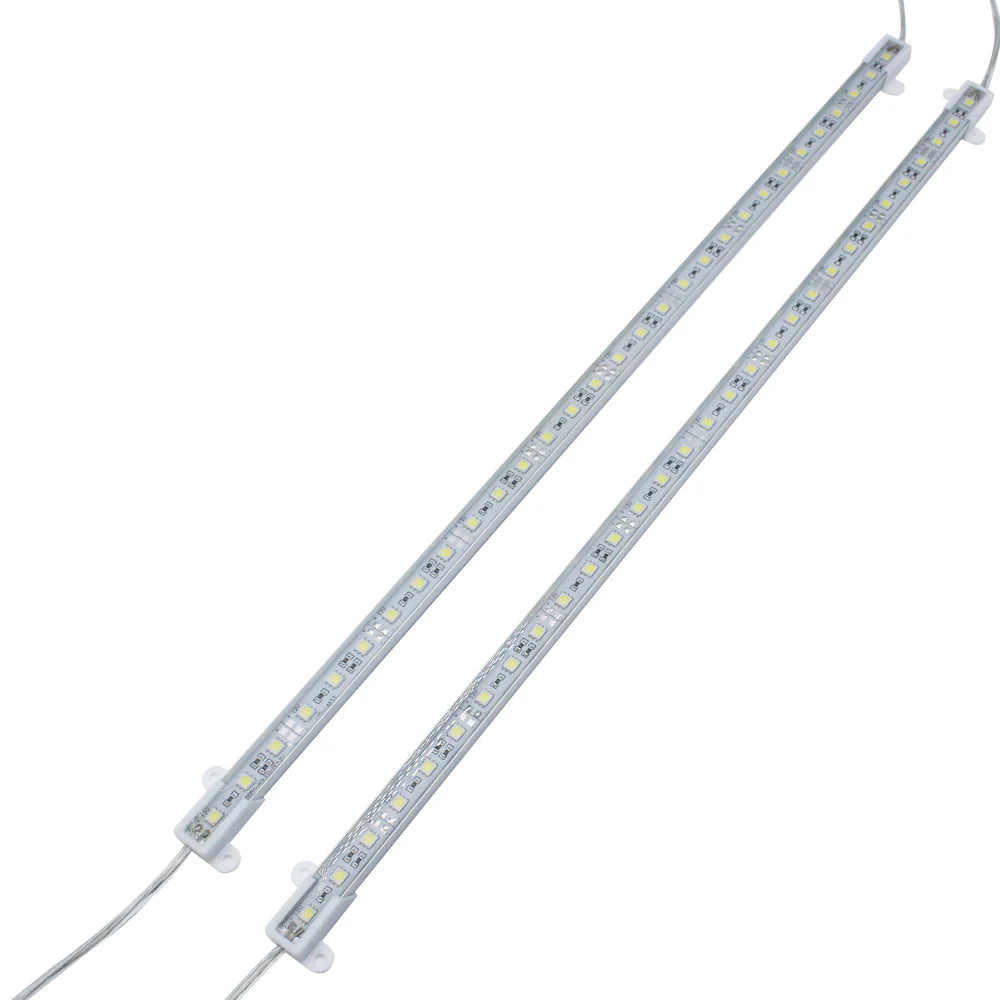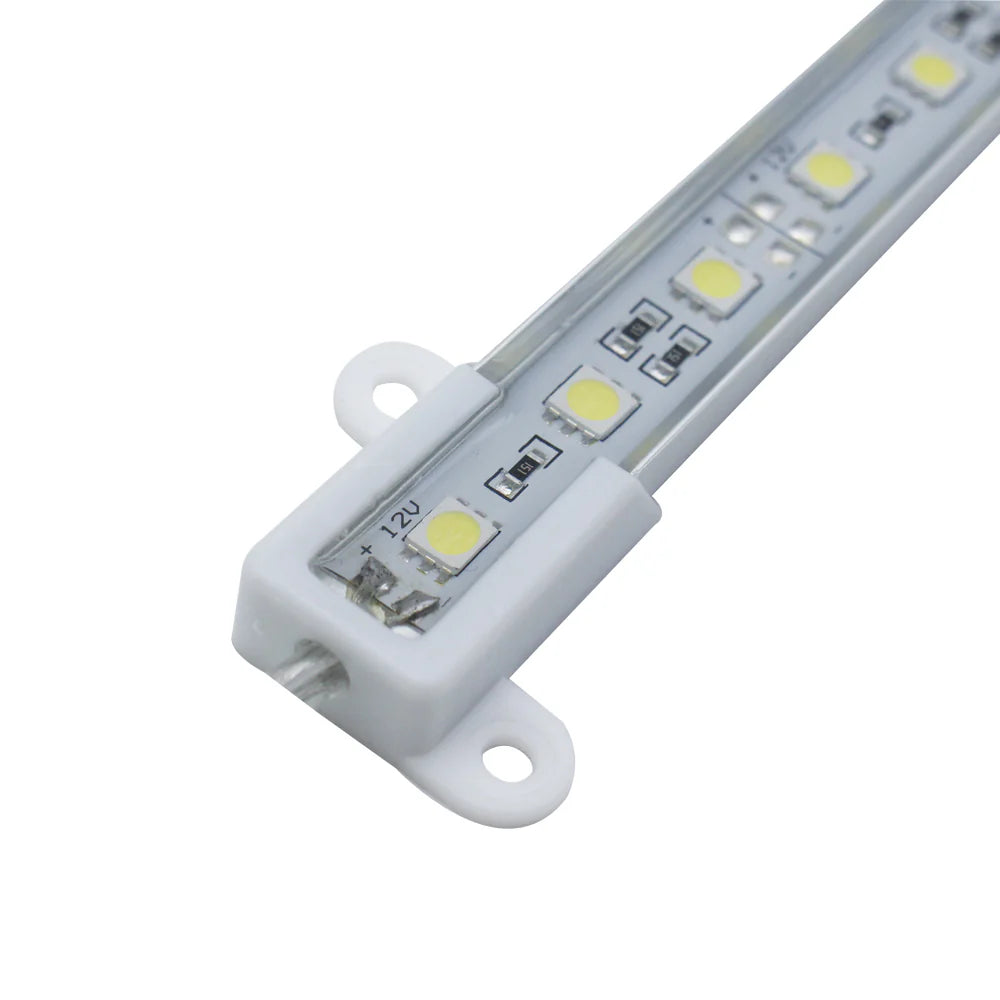Our Red & Near-Infrared LED Strip Lights provide a full spectrum range from 635nm to 940nm, covering red, deep-red, and infrared wavelengths. Designed for scientific research, plant growth enhancement, and wellness applications, these strips offer consistent performance, flexible installation options, and reliable long-term operation. With multiple package formats and lengths available, they are ideal for both laboratory and commercial environments.
Shipping Note: This series follows our Free Shipping Policy for orders over $399. Orders are processed within 2–5 business days. Standard shipping takes 9–18 days, while express shipping delivers in 5–9 days (rates calculated at checkout).
Lead Time- Ships directly from headquarters. Handling time 3–5 business days
Shipping Note
This series enjoys our Free Shipping Policy for orders over $399.
- Local Delivery: Orders are processed within 2–5 business days.
- HQ Fulfillment (when local stock is unavailable): Standard 9–18 days | Express 5–9 days.
IR (InfraRed) LED Strip Lights
Coverage across the red to near-infrared spectrum: 635nm to 940nm IR LED Strip Lights.
LightingWill’s IR LED Strip Light collection offers multiple wavelength options tailored for specialized lighting needs. From visible red to invisible infrared, these strip lights are available in flexible and rigid formats using high-performance SMD2835 and SMD5050 LED chips.
Choose the ideal IR LED Strip Light type based on your wavelength preference and installation environment.
Wavelength Guide: Choosing the Right IR LED Strip Light for Your Setup
| Wavelength | Visibility | Typical Applications | Available Strip Types |
| 635nm | Visible | Used for indicators, decorative lighting, and signage systems | SMD2835-635nm | SMD5050-635nm |
| 660–670nm | Visible | Red light therapy, photobiomodulation, and plant lighting | SMD2835-660nm | SMD5050-660nm |
| 730–735nm | Near-Infrared (Low Visibility) | Photoperiod control and flowering stimulation in plants | SMD2835-730nm | SMD5050-730nm |
| 810nm | Near-Infrared (Invisible) | Near-infrared therapy and deep tissue illumination | SMD2835-810nm | SMD5050-810nm |
| 850nm | Infrared (Invisible) | Night vision lighting, IR sensors, and surveillance systems | SMD2835-850nm | SMD5050-850nm |
| 940nm | Infrared (Invisible) | Camera IR lighting, remote control devices, and IR imaging | SMD2835-940nm | SMD5050-940nm |
How to Choose: SMD2835 vs SMD5050 in Red / Infrared LED Strip Lights
| Feature | SMD2835 (Single-Chip) | SMD5050 (Triple-Chip) |
| LED Structure | Each LED contains 1 chip | Each LED contains 3 chips |
| Emission Power | Stable output, suitable for general IR/red light applications | Higher radiant intensity, ideal for high-output applications |
| Light Spread | More uniform, ideal for short-range or surface lighting | Stronger projection, ideal for long-range or focused lighting |
| Application Focus | Home therapy, plant supplement light, basic surveillance | Professional therapy, industrial sensors, night vision, security |
| Available Densities | 60 / 120 / 240 LEDs/m | 30 / 60 / 120 LEDs/m |
| Product Types | Available in both flexible and rigid strips | Available in both flexible and rigid strips |
Recommendation: Choose SMD5050 if you need higher brightness, deeper IR penetration, or professional-grade performance. Choose SMD2835 for cost-effective, standard-use cases.
LED Strip Configuration Table (By Chip Type & Density)
| Chip Type | LED Density | Typical Power Consumption | PCB Width | LED Layout |
|---|---|---|---|---|
| SMD2835 | 60 LEDs/m | <6W/m | 8mm | Single Row |
| SMD2835 | 120 LEDs/m | <10W/m | 8mm | Single Row |
| SMD2835 | 240 LEDs/m | <16W/m | 15mm | Dual Row |
| SMD5050 | 30 LEDs/m | <6W/m | 10mm | Single Row |
| SMD5050 | 60 LEDs/m | <12W/m | 10mm | Single Row |
| SMD5050 | 120 LEDs/m | <18W/m | 15mm | Dual Row |

Visual Comparison of SMD2835 vs SMD5050 LED Strips
See how different chip types and densities affect the structure and brightness of LED strips. From single-chip SMD2835 to triple-chip SMD5050, and from 30 to 240 LEDs per meter, this visual comparison helps you understand the differences in LED layout, projection angle, and power configuration.
* Made with a various LED component type (SMD5050 and SMD2835 IR LEDs) that gives different options in Color, Wattage, and Light Density.
* With great flexibility, the infrared LED Light Tape is ideal for demanding installation conditions.
* Supplied with a self‑adhesive back, those IR LED Light Strips are easy to install.
For Red Light Therapy or Near-infrared Light Therapy
For Night Version
Application of Infrared LED Beads in Infrared Therapy Lamps: Common Wavelength Combinations and Product Types
Infrared LED beads are widely used in infrared therapy lamps due to their non-invasive nature, safety, and portability. These lamps utilize specific infrared wavelengths to penetrate tissues, promoting blood circulation, pain relief, and anti-inflammatory effects. Below are the common wavelength combinations, product types, and their applications.

1. Common Wavelength Combinations and Their Effects
Infrared therapy typically utilizes near-infrared (NIR), mid-infrared (MIR), and far-infrared (FIR). The most commonly used wavelengths include:
Near-Infrared (700nm–1400nm)
-
Common wavelengths: 850nm, 810nm, 940nm
-
Characteristics: Deep penetration (5–10 mm), directly affects muscles and nerves, enhances cell repair and ATP production.
-
Applications: Deep tissue repair, arthritis, muscle pain.
Far-Infrared (1400nm–3000nm)
-
Common wavelengths: 1550nm, 2000nm
-
Characteristics: Absorbed by water molecules, producing a thermal effect that improves blood circulation and metabolism.
-
Applications: Chronic pain, rheumatism, skin inflammation.
2. Main Product Types
(1) Portable Therapy Devices
-
Infrared LED braces (e.g., waist belts, knee pads, wristbands)
-
Equipped with 850nm/940nm LED arrays for localized pain relief.
-
Advantages: Lightweight, wearable, suitable for home use.
-

-
Handheld therapy devices
-
Small, focused devices (e.g., 810nm for joint or acupoint therapy).
-

(2) Fixed Therapy Lamps
-
Panel-type infrared lamps
-
Large LED arrays (often combining 850nm and 940nm) for back or full-body therapy.
-
Example: Medical-grade red light therapy panels (often paired with 660nm red light for enhanced effects).
-

-
Desk/floor lamps
-
Far-infrared ceramic or LED sources (e.g., 1550nm) for gentle heat therapy.
-
(3) Multi-Wavelength Combination Devices
-
Red + Infrared combo therapy
-
E.g., 660nm (red) + 850nm (infrared) for skin repair and deep anti-inflammation (acne treatment).
-

-
Infrared + Thermal therapy
-
Far-infrared LEDs combined with heating elements (e.g., carbon fiber) for enhanced warmth.
-
3. Wavelength Ratio Configurations
Different wavelength combinations are optimized for specific therapeutic effects:
(1) Single-Wavelength Dominant
-
850nm (NIR)
-
Best for deep muscle/joint pain (e.g., arthritis).
-
(2) Dual-Wavelength Synergy
-
660nm (red) + 850nm (NIR)
-
Ratio: 1:1 or 2:1 (more red light for skin repair).
-
Used in acne treatment + pain relief devices .
-
-
810nm + 940nm (dual NIR)
-
Ratio: 3:2 (more 810nm for nerve repair).
-
Used in neuropathic pain devices.
-
(3) Triple-Wavelength Combination
-
630nm (red) + 810nm + 940nm
-
Ratio: 3:4:3 (balanced for skin, blood flow, and muscles).
-
Used in full-body recovery panels .
-
-
850nm + 1070nm + 1550nm
-
Ratio: 5:3:2 (deep healing + metabolic boost).
-
4. Key Considerations
-
Penetration depth: NIR (850nm) for deep tissue, FIR (1550nm) for thermal effects.




